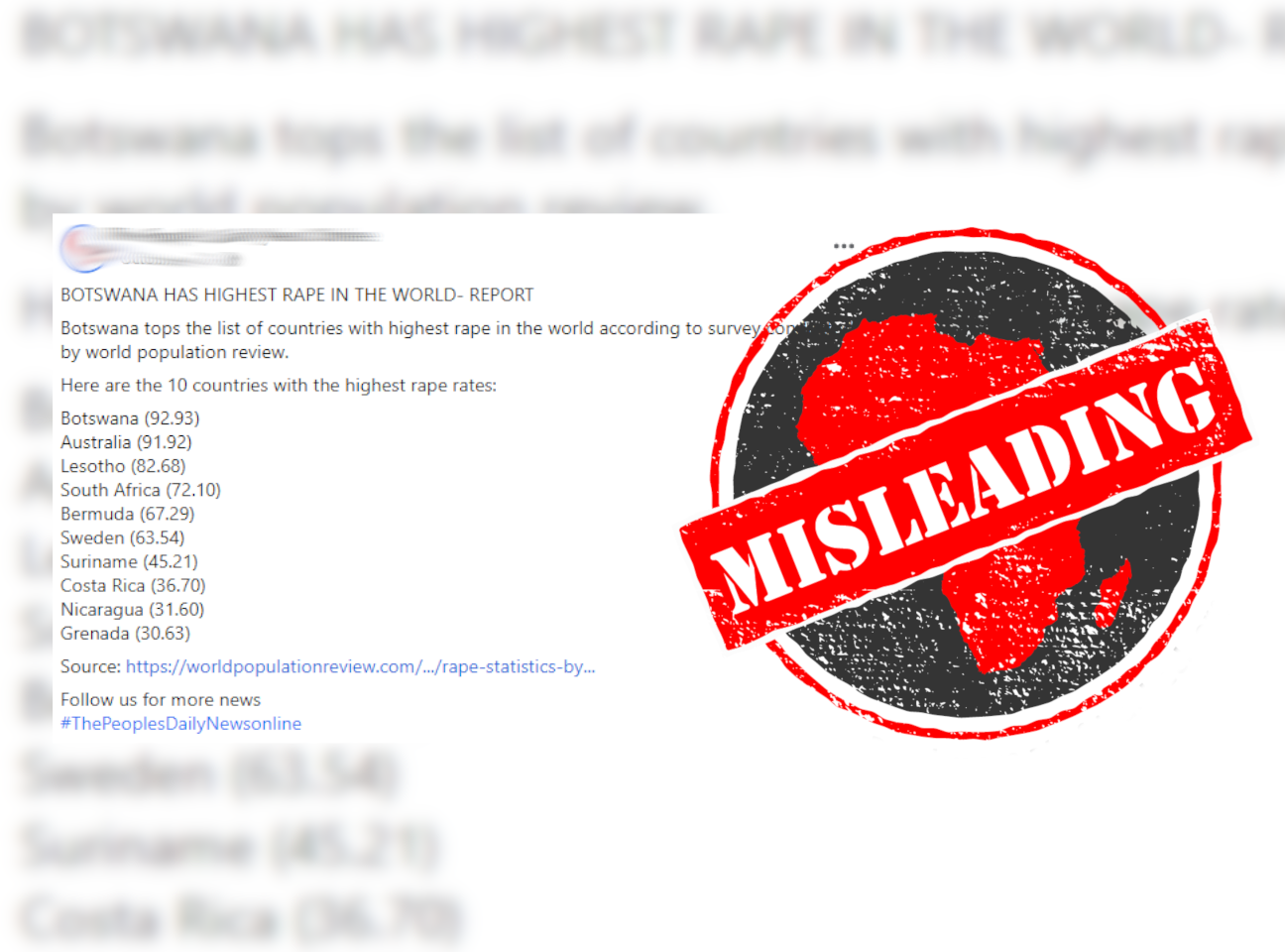“BOTSWANA HAS HIGHEST RAPE IN THE WORLD,” begins a Facebook post published on 13 October 2021.
It claims that a report by the World Population Review, an online database of demographic statistics, found that Botswana, a country in southern Africa, “tops the list of countries with highest rape in the world”.
It provides a list of 10 countries with the “highest rape rates”. The list includes Australia, Lesotho, South Africa and Sweden.
Did a survey by the World Population Review find that Botswana has the highest rape rate in the world? And is this accurate? We checked.

Old data from 2010 and 2003
The World Population Review has published a report titled Rape Statistics by Country 2021 on its website.
The report includes a list of the countries with the highest rape rates. Botswana is at the top of the list with a rate of 92.93 rapes per 100,000 people.
However, the most recent data on the list is from 2010. Australia is listed as having the second highest rape rate at 91.92 per 100,000, based on even older data from 2003. The data may well be out of date.
Africa Check could not find up-to-date data on Botswana’s rape rate. The only data we could find was a quote from Botswana police spokesperson Dipheko Motube, saying there had been 2,265 rapes reported in 2019. This would put the 2019 rape rate at 96.30 per 100,000.
In the article, published November 2020, Motube indicated that the rate had increased that year.
‘No international comparisons will be accurate’
The World Population Review report also provides a detailed explanation of why country-to-country comparisons of rape statistics are difficult to make . This includes factors such as underreporting of rape due to shame and stigma, and differing definitions of rape across countries.
Some countries do not recognise spousal rape or any act other than nonconsensual vaginal penetration as rape.
The counting of rape can also differ as some countries will count gang rape as one act of rape regardless of the number of participants, while others will record each participant as an act of rape.
Africa Check has previously published an analysis on why it is flawed to call any one country the “rape capital” of the world.
Lizette Lancaster, manager of the Institute for Security Studies crime and justice hub, told us “no international comparisons will be accurate”.
Republish our content for free
For publishers: what to do if your post is rated false
A fact-checker has rated your Facebook or Instagram post as “false”, “altered”, “partly false” or “missing context”. This could have serious consequences. What do you do?
Click on our guide for the steps you should follow.
Publishers guideAfrica Check teams up with Facebook
Africa Check is a partner in Meta's third-party fact-checking programme to help stop the spread of false information on social media.
The content we rate as “false” will be downgraded on Facebook and Instagram. This means fewer people will see it.
You can also help identify false information on Facebook. This guide explains how.


Add new comment